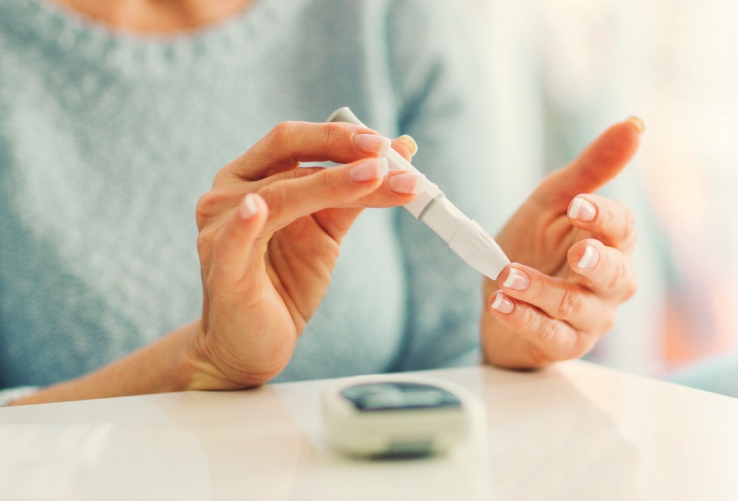NATIONAL DIABETES AWARENESS

Education is key for patient and caregiver
November is National Diabetes Awareness Month. In 2012, 29.1 million Americans, or 9.3 percent of the population, had diabetes. 1.4 million Americans are diagnosed with diabetes every year.
The Diabetes Assessment and Management Center (DiAMC) in Shreveport is working to help patients with this increasingly diagnosed disease, providing primary care, diabetes care and chronic care.
“Our purpose is to improve the quality of life for people with diabetes through better health outcomes and reduced cost.
Diabetes has been described as a slowmotion catastrophe because patients often don’t feel sick, and many patients do not take diabetes seriously until consequences are severe and they face long-term complications. Diabetes in the U.S. has reached epidemic proportions and has become an unprecedented public health burden,” said DiAMC President Clay Crenshaw.
When a patient is diagnosed with any form of diabetes, whether it’s Type 1, Type 2, gestational or another form, education is key for the patient and his or her caregiver.
A diabetes diagnosis calls for changes in all areas of life, from diet to physical activity to travel.
“Diabetes education is a critical element of care for all people with diabetes and those at risk for developing the disease. It provides the foundation to help people with diabetes to navigate daily health decisions and activities and has been shown to improve their health. The overall objectives of diabetes education are to support informed decision making, selfcare behaviors, problem solving and active collaboration with the health-care team in order to prevent or delay the complications of diabetes, such as heart disease, stroke, nerve damage (neuropathy), kidney damage (nephropathy), eye damage (retinopathy) and amputation,” Crenshaw said.
Diabetes is a problem with your body that causes blood glucose (sugar) levels to rise higher than normal. Most of the center’s patients are Type 2 diabetics, which is also known as adult onset diabetes. Type 2 is the most common form of diabetes, affecting up to 95 percent of people battling diabetes, according to Crenshaw. However, Type 2 diabetes can be reversed.
The clinic also sees patients with Type 1 diabetes, which is traditionally known as juvenile diabetes. Though many develop Type 1 diabetes as children, it’s now more common to develop Type 1 diabetes as an adult. Type 1 diabetes is a chronic illness that cannot be reversed, but it can be managed with insulin.
According to a 2015 medical study, nearly 50 percent of adults living in the U.S. have diabetes or pre-diabetes, a condition where a person already has elevated blood sugar and is at risk to develop diabetes.
Many seem to feel a stigma about diabetes, feeling patients brought the disease on themselves.
“People with diabetes are often treated differently and sometimes suffer from low self-esteem and fear of rejection by loved ones or discrimination at school, work and in social situations. Knowledge and awareness of diabetes are the keys to creating a sense of urgency about this growing public health crisis,” he said.
Through his work at DiAMC, Crenshaw has been able to see patients transform their lives and work toward their goals.
“It has been rewarding to watch our patients reverse their diabetes with the help of our program. They significantly improve their quality of life and appreciably reduce their health-care costs. Patients do not heal selectively so I’ve seen patients reduce or eliminate expensive mediations for diabetes, blood pressure and cholesterol as well. Many patients experience weight loss and find improvement in other comorbid conditions,” he said.
Patients do not need a referral from a physician to visit DiAMC, but they can collaborate their care at DiAMC with their primary physician. To make an appointment, call 212-1194.
